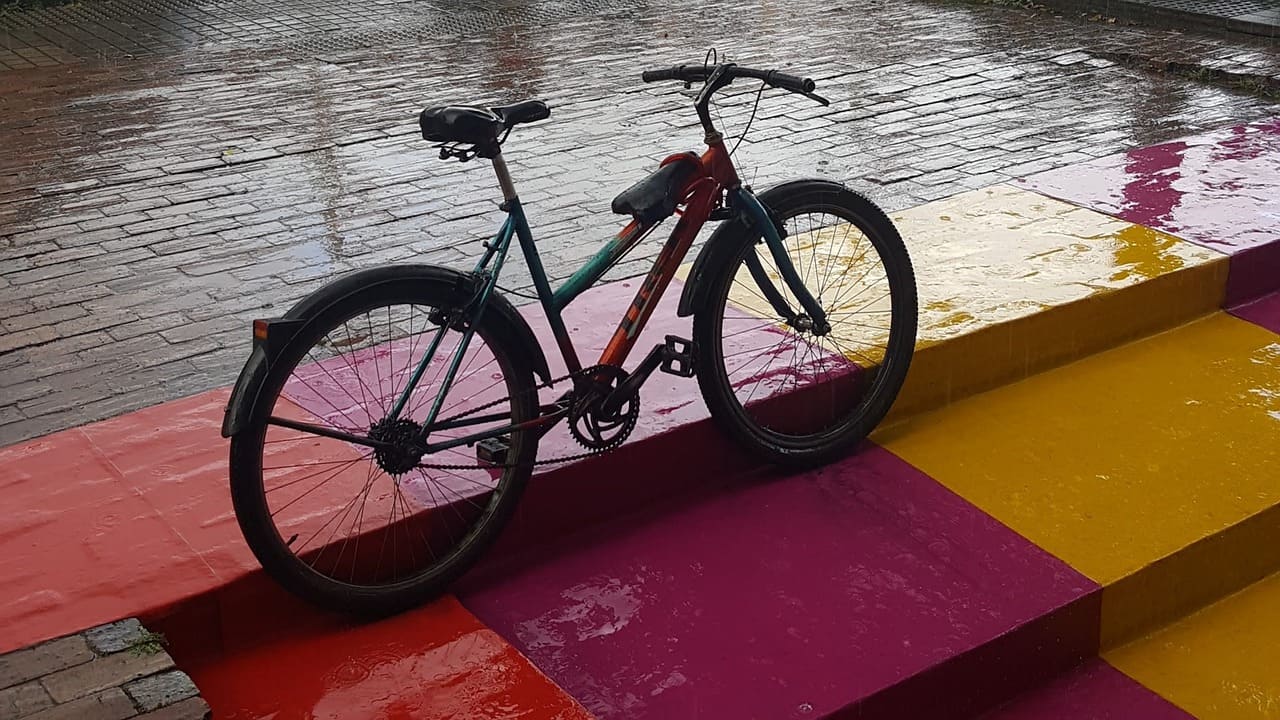I'm a Gender Autonomist
The term 'gender activist' is used to point at trans people living with dignity and solidarity, capable of saying 'no thank you' and daring to shrug at and disagree with someone who doesn't like them just because they're trans. 'Activist' is used as an insult for someone who believes in autonomy.

Bodily autonomy is important to everyone, though some don't feel its importance or can't explain why it's important until it's taken away or they realize they never truly had it.
People who contemplate gender transition get in touch (deeply and in detail) with our need for certain kinds of autonomy, especially regarding our bodies. This kind of personal freedom may start as a yearning that we must find a way to bring to life.
Wanting autonomy can be linked to bad feelings as well as good ones. So many human feelings are unpleasant or "negative": dysphoria, confusion, denial, self-doubt, loneliness, fear, anger, resentment, regret. That's OK. If we never feel bad, we lack the context for making meaningful choices. If we don't allow ourselves even the possibility of feeling bad, we deny ourselves important freedoms: to feel things, and to make choices informed by feelings.
Unfortunately, lots of people oppose autonomy for others
I spend a lot of time thinking about modern anti-transgender rhetoric. Speaking of negativity, I don't want to get too negative right now. But through thinking about what some people say against trans people, I gain unexpected insights or, rather, expected ones that become epiphanies, which are insights that once flitted away and now return in new bodies.
If you've heard any recent anti-transgender language, you've heard the disparaging term activists, usually preceded by an adjective like trans, gender, transgender, or radical. It's an empty term. The people who are so unfairly labeled (with pejorative intent) are rarely engaged in strategic pursuit of any cause. The term's meaning isn't literal. It's used because it's cleaner to say "I oppose the other team's activist agenda" than "I'm prejudiced against people who are transgender." In this context, activist is primarily used to point at shiny happy trans people, living with dignity and solidarity, capable of saying no thank you. It refers to anyone who dares to shrug at and disagree with what the anti-transgender person is saying.
It refers — this is my epiphany — to someone who believes in autonomy.
How this came up for me
A couple days ago, I spotted an anonymous online anti-trans commenter who earnestly attempted to explain who he imagines these enemy "activists" to be.
He said the "activists" are:
- Trans people who believe their own gender path "worked" and thus everyone else should transition too
- Non-trans people who get excited about a trans "agenda" as a key civil right
These "activists," he alleged, are people who make assumptions and don't stop to ask questions. He imagines these people exist and oppose him; thus he opposes them too.
Taking a moment to consider his definition:
His first type of "activist" is a straw man (i.e., a false representation of our views). All the trans people I've met are in touch with our own gender uniqueness; we don't assume that anyone else should follow in our exact footsteps; the clothes we sew include the proverb "your mileage may vary" embroidered on the inseam. There is no transgender platform mandating that everyone be trans in exactly the same way. I'd be hesitant to describe others' genders as "working" (in the sense of functioning), even as working for them, because gender doesn't have to serve a function. There doesn't have to be a success metric.
His second type of "activist" is also a straw man insofar as there is no trans agenda. What's more telling here, I think, is his avowed suspicion of anyone who vaguely supports any kind of "rights" for trans people. Trans rights—whatever they be—are what he opposes. He will oppose whatever it is a trans person says we need to survive and thrive.
That's when I realized:
What he's skeptical of is autonomy.
He can't imagine anyone wholeheartedly granting others the freedom to self-actualize their bodies as they please.
He can't imagine anyone truly believing that bodily self-determination is a core political right.
He probably doesn't know or listen to any trans or trans-inclusive people. The result, unfortunately, is that he constructs a mirror-world fantasy in which "trans" describes someone who imposes gendered norms on others while lacking the right to do so. It means someone who assumes illegitimate authority.
Of course, that's not what transgender means. That's not what trans people are saying or doing.
Meta-autonomy
If I were to be in dialogue with a guy like this, I anticipate he'd ask me:
Exactly what freedoms do you believe people should have?
I wouldn't know how to answer. Would he mean to ask me what kinds of decisions people can make? About which parts of their bodies? With which doctors? At which ages? With whose money? For how long until they achieve what results? To present themselves in which genders? To disclose, or not to disclose, that they are trans? And how will we know if their transition has failed? If they've lived incompletely or badly? How will we know if they've lost the right to their gender, and how will we prevent them from making any more choices?
Ah, but here's the thing. I don't have a specific list of freedoms, rights and obligations because I don't have a trans agenda.
When I say I believe in autonomy, I don't mean a set of freedoms to do any specific things.
I mean autonomy for each person to decide what freedoms they need. A meta-autonomy.
But can a four-year-old drive a car—
See here. I don't keep a list of specific kinds of people who I forbid to do specific things that they probably aren't going to do anyway or that I won't be there to interfere with. That would be an infinite list, if I presumed myself able to make it in the first place. So I just don't try. That's the meta-autonomy. It's open-ended. Come talk to me if you see a four-year-old driving a car and if you need me to deal with the situation. The problem won't be owed, anyway, to me having neglected to previously declare that four-year-olds oughtn't drive.
Free to decide what it means to be free
The pejorative term trans activists is all over the place and is never defined. In fact, there is no conventional agenda, and people aren't activisting for it.
What I hear a lot of people asking for — trans people, trans-inclusive cis people, and people who are a little annoyed by that binary but are anyway our people — is to let everyone be free to decide what it means to be free.
We're not radical activists. We're radical autonomists.
Well, some of us are activists too. And because I'm an autonomist, I think it's cool if you're an activist. Who am I to tell you "no"?
I'm rarely equipped or positioned to interfere with anyone else's decision-making about their body. Their body isn't my prerogative. Perhaps if I had specific expertise, or a special role or relationship, I could advise someone's decisions—even try to put my foot down, were I mad. But on an average day, in an average situation, I can't. I wouldn't try. Someone wants to do something with their body or their gender, and all I can do is nod and say that people in general have autonomy to live their lives.
By the way, who are we talking about? Do they have a name? What is it that they're trying to do? How does it affect me? Would I approach them and make a comment to their face? Would you?
There are many things I don't know about life in this world. Sometimes I look up information or ask a question. But I don't "ask questions" just to try to intimidate a stranger out of doing whatever it is they feel called to do. No, I wouldn't pause to ask questions that aren't my business.
Bicycle in the rain
Once, I saw this bicycle in the rain.
Is it good to leave your bicycle unattended on a staircase? Maybe not. It could fall down the stairs. It's not locked up. Someone could steal it. Meanwhile, it's getting wet.
Is the choice mine to make? No, because it's not my bicycle, not my staircase.

Maybe the person I can't see—someone I'll assume is a bicyclist, not an activist—is doing something absolutely incredible with their day. They ride their bike in the rain, pause their ride, resume it. They must be doing something I should be so lucky only to imagine.
Or maybe they're sad, and on top of that, now they're damp. Maybe the next time it rains, they won't take the bike out.
I'm grateful we live in a society where they have the autonomy to learn for themselves whether they like biking in the rain. It's their feeling to experience and their experience to feel. Whatever they decide they need to do is their thing to do.
I have no agenda, but I guess I'm an autonomist about nearly everyone else's to-do list.


